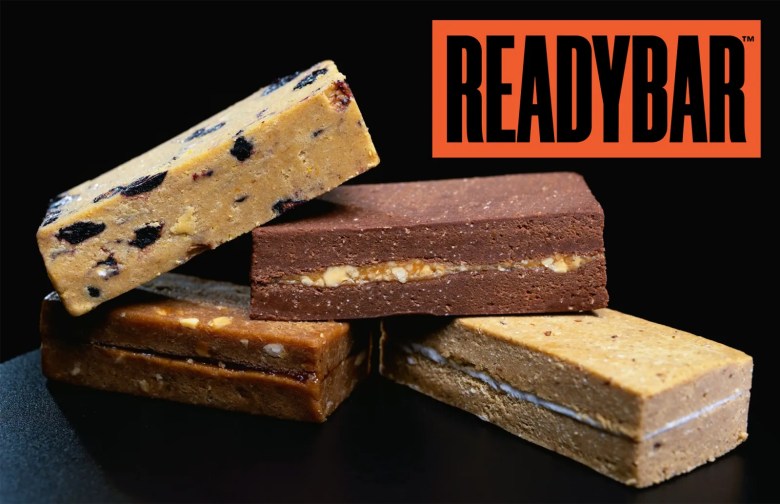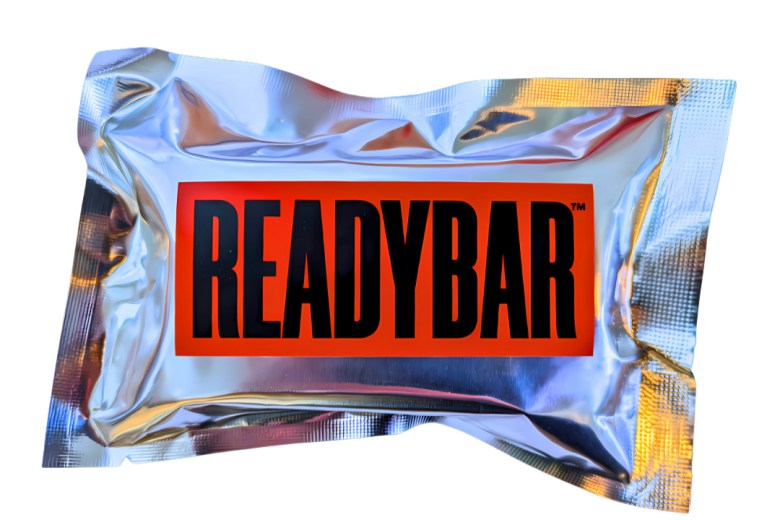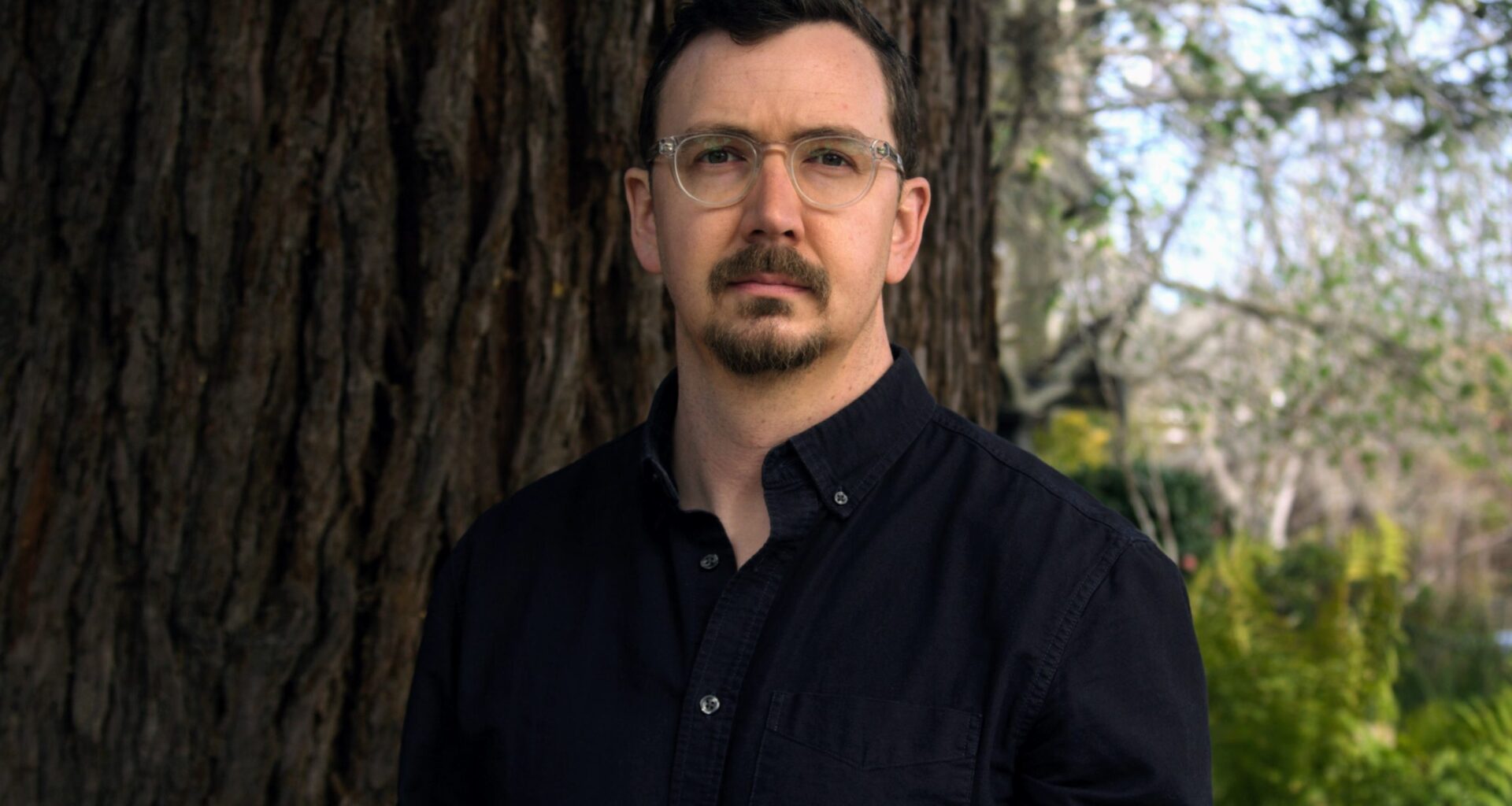While leading NASA’s food system for the International Space Station, one of the projects Ryan Dowdy worked on was developing a balanced meal for astronauts that was efficient, convenient, and compact.
It was from this project that Dowdy came up with the idea for READYBAR, a bar that serves as an entire meal. But, instead of feeding astronauts, it is marketed to first responders and others who need a quick, balanced meal on the go.
In January, Dowdy, who lives in Oakland, was ramping up his new venture and found out he’d won a small business grant from the U.S. Department of Agriculture. Two weeks later, Trump paused all federal grants and Dowdy was left without the capital he was counting on to get the business off the ground. Dowdy reached out to NPR, and they picked up his story as an example of how Trump’s pause on funding caught people off guard and left them struggling to decide what to do next.
After the NPR coverage, business picked up, but Dowdy found himself in exactly the type of situation he had spent the bulk of his career avoiding.
The reluctant entrepreneur
Dowdy never thought that he would start his own business.
“My entire life, I said I’m not going to start a business,” Dowdy said. “I always felt like it was too risky. Why would I want to start my own business when I can work someplace and not have to take on that risk.”
Dowdy had seen and felt this risk firsthand. When he was growing up, his father started a construction business that ended up going bankrupt. Since then, he has always thought that starting a business was a bad idea.
He and his wife moved to the Bay Area because of the concentration of food technology companies in the region. Dowdy figured the wealth of options would mean he would always have a place to work, but when the economy shifted, he realized this was no longer true. Instead, he turned to what he’d always avoided.
“So it kind of forces you into a position where you say, actually, this isn’t the same risk that I thought it would be. This actually might be the best bet that I have to make right now,” Dowdy said. “And so I’m glad that I started READYBAR. There’s been a lot of love and support from family and friends and from our business advisors. I think that’s one of the reasons that we’ve been able to stay afloat in a tough situation for small businesses.”
Dowdy came to California for the first time in 2014 to get his PhD in food science at UC Davis. During his studies, he had the opportunity to intern at NASA.
“It was a once-in-a-lifetime opportunity where they said, ‘Hey, it turns out that while you’re interning, the current manager for the International Space Station food system is going to be retiring, and we think you might be a good fit,” Dowdy said.
The catch was that he would have to finish his doctorate in a tight three and half years, but Dowdy was up for the challenge. He finished his PhD and moved to Texas with his wife to jump into the job.
 READYBAR currently comes in four flavors and Dowdy plans to add a new flavor soon. Credit: Kat Vo/ Courtesy of READYBAR
READYBAR currently comes in four flavors and Dowdy plans to add a new flavor soon. Credit: Kat Vo/ Courtesy of READYBAR
“I was managing all the food that goes to the International Space Station,” Dowdy explained. “I was doing the food that goes up and comes down on the SpaceX rockets so that astronauts can eat it in an emergency, like if they get stuck orbiting Earth, or if they get stuck docking to the International Space Station, that they’ve got emergency food there.”
One project that Dowdy worked on at NASA was putting an entire meal into a bar. He said that NASA has been working on this idea since the 50s, but kept running into the issues of the bars having too much sugar and looking unappetizing.
“It didn’t really look like food, it just looked like a large brick,” Dowdy said. “And so they had a hard time getting the astronauts to actually finish it.”
This idea of creating food for astronauts motivated Dowdy to start READYBAR when he moved back to California after leaving NASA in 2021. The goal of READYBAR is to create a bar that is actually an entire balanced meal: it has zero sugar syrups or sugar alcohols, and it looks somewhat more presentable than many other bars.
“People eat with their eyes before they eat with their mouths,” Dowdy said.
The first two flavors Dowdy created were peanut butter and jelly and chili. The chili flavor came out of Dowdy’s desire to create a savory bar. He decided to try to make a “five alarm chili” which would include dehydrated beans with spices. Dowdy said that this ended up being the worst flavor he’s made.
“I started sampling it to people, and they said, ‘This is gross. What is this?’ Because making a savory bar isn’t a bad idea, it’s just there are a few things that make it difficult to do, and one is that in people’s minds, bars are generally sweet-flavored, or they are a sweet and savory mix,” Dowdy said.
The other factor that makes a savory bar difficult is that most binding syrups tend to be naturally sweet.
The first advisor that Dowdy brought into his company was Jason Quinn, a former US Coast Guard rescue swimmer. Dowdy asked him what he would’ve wanted to carry and eat on the job. His response was that he wanted an entire meal in a bar, but he wanted it to look and taste like a peanut butter and jelly sandwich.
It was a lightbulb moment for Dowdy, who got the idea to make the bars in a “sandwich format.” Each bar, of the four different flavors right now, has an outside layer acting as the “bread” with an inner layer acting as the “jam.” The four current flavors are sea salt PB&J, chocolate peanut butter caramel, oatmeal crème, and blueberry muffin, with an espresso mocha bar coming out in the next couple of months. The blueberry muffin is the only bar that doesn’t come in the sandwich format, but it looks like a blueberry muffin in color and with visible large blueberries. The bars are packaged in NASA-grade packaging for a two-year shelf life.
Each bar starts off with a pea and rice protein powder — a vegan protein source. Every bar has 25 grams of protein. The carbohydrates come from oats. The bars are very low in sugar content — there are no sugar alcohols or artificial sweeteners. The bars also do not contain any gluten, eggs, or dairy.
The initial marketing targeted first responders since they, like astronauts, need a lot of calories and don’t have a chance to just stop what they’re doing to get food.
“So we started marketing to firefighters, US Coast Guard, rescue swimmers, paramedics, folks in the helicopter search and rescue community, and they loved it,” Dowdy said.
A market for READYBAR
NPR ran the article on the suspended grant, and suddenly, there was a market for READYBAR.
When NPR told Dowdy in February that they were going to publish the article the next week, he didn’t even have a website yet.
“So I built the website the weekend before, and my wife took pictures of READYBAR in our kitchen on the kitchen counter, and we just threw them up on the website and built a Shopify website,” Dowdy said.
The response was overwhelming.
“Everything just kind of exploded at that point,” Dowdy said. “I got more orders than I was able to produce myself, so I had to hire my first employee.”
After a pre-seed fundraising round, they took their investors’ money and converted it into thousands of bars sold, which Dowdy produced and shipped themselves out of Mail Max in Temescal. Now, they’re ready to go into their seed round, which is the first official round of funding for a start-up.
 READYBAR comes in NASA-grade packaging that helps give it a two-year shelf life. Credit: Kat Vo/ Courtesy of READYBAR
READYBAR comes in NASA-grade packaging that helps give it a two-year shelf life. Credit: Kat Vo/ Courtesy of READYBAR
And, just as READYBAR was taking off, the federal government got back in touch. After months of silence, on August 7, Dowdy received an email from the USDA saying READYBAR had passed the administrative review and would receive the funds soon. Dowdy says he’s expecting the funds later this week or early next week. The final approval of the grant comes one week after Congresswoman Lateefa Simon’s office opened a case work file with the USDA.
Now, Dowdy plans to ramp up the business, add flavors and continue to spread the word about READYBAR. One percent of all bars sold is donated to first responders. They’ve also donated free boxes of the bars to stations in both Oakland and San Francisco.
“I was worried that READYBAR was a little niche for what the general public would look for,” Dowdy said. “But what I realized is there are a lot of applications here. During our launch, 80% of our customers were not first responders.”
One market that Dowdy didn’t realize would be interested in the bar was nursing mothers, another group of people who need a lot of calories but have little time to prep food.
“It’s just been really fun to see all the good things that READYBAR can do in all these places that I never thought it would be,” Dowdy said.
“*” indicates required fields

